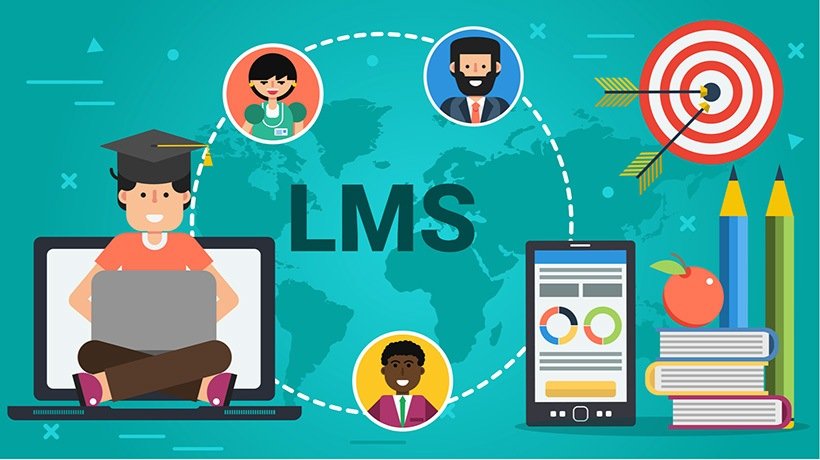Salesforce is considered one of the best CRMs in the industry. Surprisingly, it can be used as an efficient learning management system (LMS). The Salesforce LMS technology can offer multiple benefits, from imparting a fantastic onboarding experience to beginners to training channel partners.
If you have invested in Salesforce, you do not need to spend more on other new software. Integrating Salesforce with LMS apps through the SFDC interface can offer a great training experience for all your employees.
Listed below are the most critical features of the Salesforce Learning Management System software.
1) Links Training Programs and Performance Metrics
The LMS technology of Salesforce eliminates the need to access different systems. It links the learning activities and training programs to the performance metrics of the sales team. It provides automated reminders and alerts to ensure that team members complete their courses. It also facilitates access to coaching sessions and sessions on all updated content.
2) Captures Explicit and Tacit Knowledge
This LMS technology makes it easy to capture and document essential knowledge from the best resources in your organization. It includes search tools and social tools to access information in various forms such as video clips, audio snippets, proposals, case briefs, and much more. It ensures that relevant information is available to the team through every phase of the sales process.
3) Allows Guided Selling
A general repository of customer data may not be handy to the sales team. Often the seller is not aware of the buyer investigating the relevant knowledge resources. Using the LMS technology, customer data is organized by paths and customized to buyer personas or the sales stage. The structured data makes the sales team more productive. LMS also provides real-time data to showcase more patterns about buyer engagement.
4) Enhanced Training for the Team
Without the LMS, the training content remains static. Manual follow-ups and one-time training make learning very obsolete. Salesforce LMS can make learning continuous and just-in-time. Team members receive real-time reminders and can train at any time. Training is accessible from any location and with any device. The content is always up to date.
5) Tracking and Reporting Performance
The traditional approach to training does not allow employers to measure the performance of trained employees. There is no means to relate the impact of the training to the performance of the employee. The LMS technology tracks training adoption. It includes tools to mark training attendance. It monitors employees’ records of certifications and the time spent on training programs. It provides more data to measure the effectiveness of training programs.
6) Integration with Other Applications
Salesforce LMS can be fully integrated with other business tools such as Slack and Microsoft Team. The integration avoids the need to switch between multiple platforms. Employees can have a more focused approach to training. Training adoption is greater and easier when your organization can deliver learning through a preferred set of tools.
7) Creating New Upselling Opportunities
Salesforce Learning Management System software integrates training data from the customers as well as other business partners. The unified knowledge allows the team members to develop a deeper understanding of each account. When they go deeper into account information, they can identify new upselling opportunities.
8) Automated Enrollment for Training Programs
The LMS technology automatically creates learner profiles for eligible team members. Team members are constantly alerted about upcoming training programs and missed programs. The system also enrols employees automatically into the mandatory training program. With the extra push, more and more employees take to learning and productivity of the organization increases significantly.
9) Customized Training for Your Sales Team
The LMS links back the training activity and attendance records of team members to their performance. Apart from helping with understanding their revenue impact, this also helps customized training plans for each employee. The experience, interests and organizational role of the team members are considered before customizing their training plan.
10) Make Your Enterprise Future-Ready with Salesforce LMS
Salesforce is the environment where the sales team spends most of their time. Customer account executives, helpdesk assistants, and many other team members rely upon Salesforce for their daily routine.
Therefore, it is an organic choice to embed the sales training into the platform. The learning application is integrated with the CRM. Together they can make the enterprise skilled, well-informed and on track.
Conclusion
Salesforce LMS is essential for every growing organization. In various industries such as retail, franchises, financial services, etc., the speed and efficiency of Salesforce LMS has allowed team members to access the most relevant knowledge resources during customer interactions. As a result, productivity and the extent of accessing valuable knowledge have increased tremendously.














